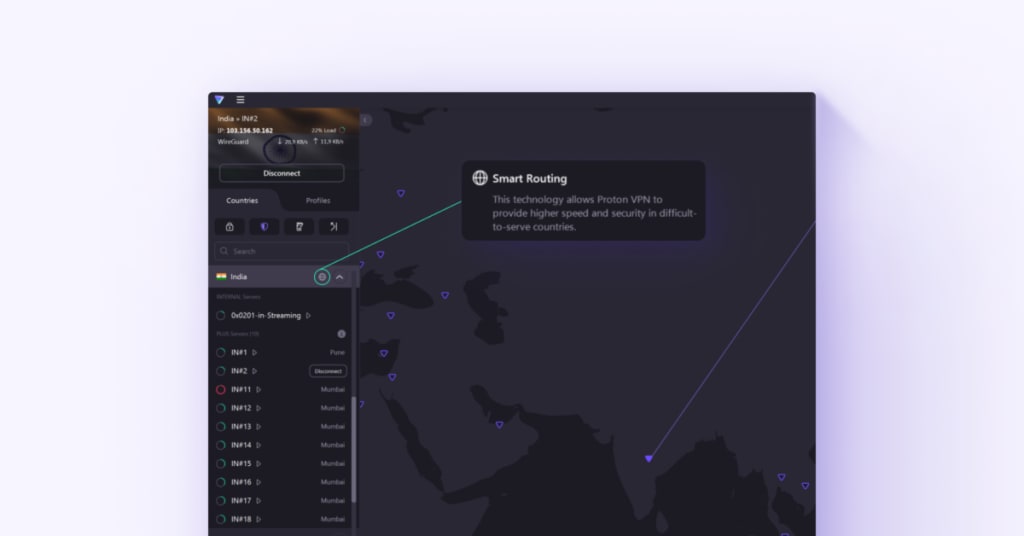To protect the privacy of the Proton community, we are removing our VPN servers physically located in India.
This is in response to a new law in India that is going into effect in September 2022 that would require the data centers we work with to begin logging user activity. This is against everything we stand for. We work to ensure that Proton VPN keeps your online browsing private with a strict no-logs policy that was recently audited by independent security professionals.
You can continue to connect to any of our international servers, or you can connect to our new Smart Routing servers for India. These will give you an Indian IP address and behave just as our physical servers in India did. The only difference is that, in reality, they are based in Singapore.
Learn more about Smart Routing
By using our Smart Routing servers that are based in Singapore, we can continue to offer the Proton community private, no-logs VPN service with an Indian IP address. If you live in India or used to connect to our India-based VPN servers from elsewhere, you can switch to these Smart Routing servers and use Proton VPN just as before.
Why are we doing this?
In April 2022, India’s Computer Emergency Response Team(新しいウィンドウ) (CERT-In) announced a new rule(新しいウィンドウ) requiring all virtual private network (VPN) providers, data centers, and cloud service providers operating in India to collect and report ”extensive and accurate” data from their users for five years.
Under this law, Indian VPN providers and data centers are expected to log:
- Your full name, physical address, email address, and phone number
- The IP address you used to register for the VPN, together with a timestamp
- The IP addresses you use connect to VPN servers in India, together with a timestamp for each connection
- A list of all IP addresses issued to each customer
- Your reason for using a VPN
The directive will come into full effect on September 25, 2022. Failure to comply can lead to one year in prison.
At Proton, our aim is to build an internet where privacy is the default. From Hong Kong(新しいウィンドウ) to Belarus(新しいウィンドウ) to Myanmar, we actively fight for freedom of expression(新しいウィンドウ) around the world.
This is why we maintain a robust no-logs policy that is guaranteed by Swiss law. We never log IP addresses, browsing history, DNS queries, or any other information that can compromise your privacy.
We have no intention of complying with this invasive mass surveillance law, leaving us no choice but to remove our VPN servers from Indian jurisdiction.
We’re still here for you!
If you connect to Proton VPN from India, there is nothing to worry about. Connect to any Proton VPN server for uncensored and no-logs access to the internet.
If you want an Indian IP address, connect to one of our India Smart Routing servers.

Doing this allows you access content only available in India, but with no logs, and fast connections thanks to our unique VPN Accelerator technology.


